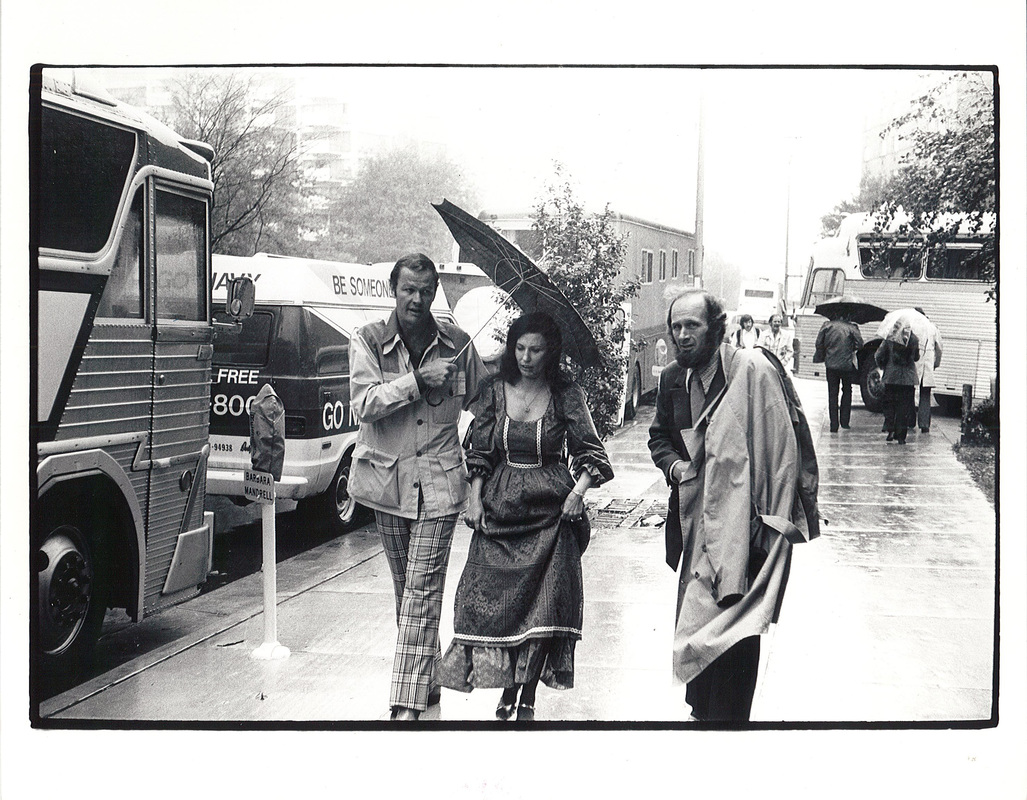|
When I was helping Loretta Lynn write her book (“Coal Miner’s Daughter”), I got used to visible signs of security.
The bus driver, big Jim Webb, with his Elvis pompadour, tucked a softball bat under his seat – “In case a ball game breaks out,” he would drawl. There were fake names in hotel registers, to foil stalkers. And I got used to interviewing people with their pistols on the table. (“Umm, could you point that the other way and cover it with your ball cap?” I would ask.) That security was necessary. So was Loretta’s formidable (and large) manager-agent, David Skepner, a Beverly Hills guy who had moved to Nashville. “DAYYYY-vid,” Loretta would drawl. “You are mah son-of-a-bitch.” After Skepner signed on, Loretta’s visibility went up, and so did her price. She won Country Music Entertainer of the Year, first woman to do so. She went on the “Today” show. She hired a writer (“Jawrge, you are mah wrahter”) and she watched talented people (not me) make a great movie about her life. Even when they stopped working together, Loretta would call Skepner and get his guidance, now for free. He was her son-of-a-bitch. I tell this story as Mets fans quiver over the machinations by Matt Harvey’s agent, the notorious Scott Boras, who has dropped a skunk in the middle of a garden party the Mets are tossing this September. He has raised questions – valid doctor’s questions, at a highly awkward time – about how many more innings the reconstructed Mr. Harvey should pitch this year. Possibly, you have heard of this. Boras is Matt Harvey’s son-of-a-bitch. Of course, he was also A-Rod’s son-of-a-bitch -- until he botched a feint toward the Red Sox. They no longer work together. Boras has led Harvey into a gross and intrusive display during a pennant race, but that is his job, until it isn’t his job. I am assuming the Mets were always going to minimize Harvey, more than 180 innings, far short of being a workhorse into the post-season. (Remember the speculation of whether Bartolo Colon would be on the post-season roster?) Now the Mets may view Matt Harvey differently – as expensive collateral in the off-season: Cespedes Money. But that’s the chance agents and their clients take. This is perhaps a little secret of life, but some writers also have agents. I had one, and now another, and both have served me well. I’m just guessing that some people who question Scott Boras’ ethics also have representation. In this cut-throat world, more people could use their own personal son-of-a-bitch.
Brian Savin
9/8/2015 06:13:55 pm
I just heard Terry Collins in his pre-game comments today and was hugely impressed by his (I think) brilliant way of diffusing this situation. His message was at some point Harvey was going to want his big compensation day, and Terry agreed with that and said Harvey had no thoughts other than what Collins sometimes thought about for himself. The manager seems determined to keep Harvey team focused, and I will bet he just did.
George Vecsey
9/9/2015 09:14:20 am
Brian, I totally agree on Collins. He didn't act as if he took the Harvey Camp agitprop personally. He has been terrific his whole tenure -- keeping together a cheap team, now fortified, getting some troops he deserves. The Mets have played for him since Day One. The last two games vs. Washington have been amazing -- I was sure they would lose both, just because, even though I have respect for their competitiveness. They also have leaders in the clubhouse -- Wright, Granderson, Cuddyer and now Uribe. They have bolstered Flores and now Harvey, kept the team together. GV
Brian Savin
9/9/2015 10:01:11 am
The best propaganda for agents I ever saw was the old Errol Flynn movie, "It's Tough to be Famous" in which he plays a submarine captain who saves his crew at the expense of his own life, but is himself miraculously saved and then has to live with the consequences. Walter Catlett plays an agent (in those days agents also needed a "real" job to make ends meet, so the character is also a magazine publisher of sorts) who Flynn ultimately and very, very reluctantly consents to hire when he faces no choice.
Josh Rubin
9/9/2015 10:51:26 am
Some fans like to brag about their teams. I tend to fret. Now that this team can hit, i've been fretting about pitching for weeks. It has been much less consistent of late, and I worry the young guns are all running out of gas, having all pitched incredibly well for most of the season. 9/9/2015 09:49:25 pm
Regardless of the organization or business, good coaches and managers make a difference. Comments are closed.
|
Categories
All
|










